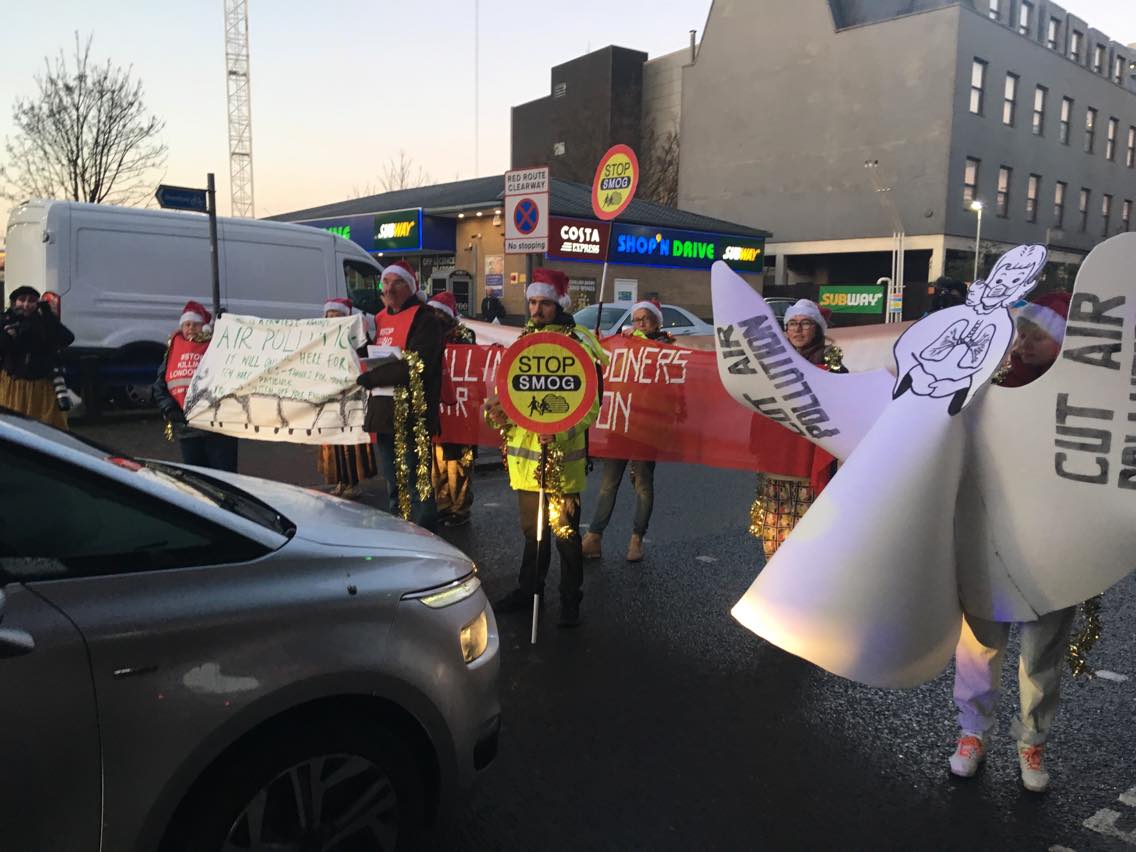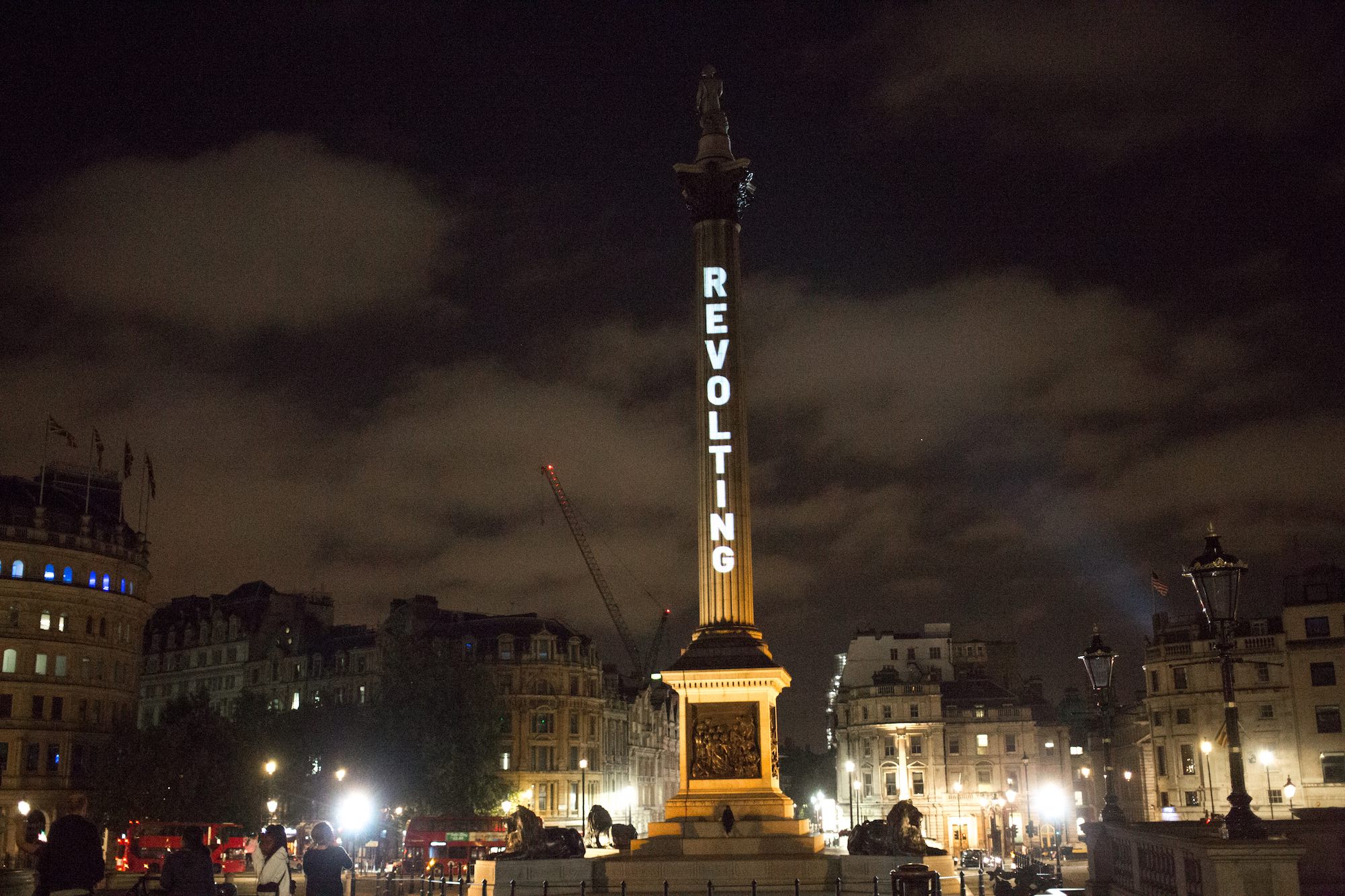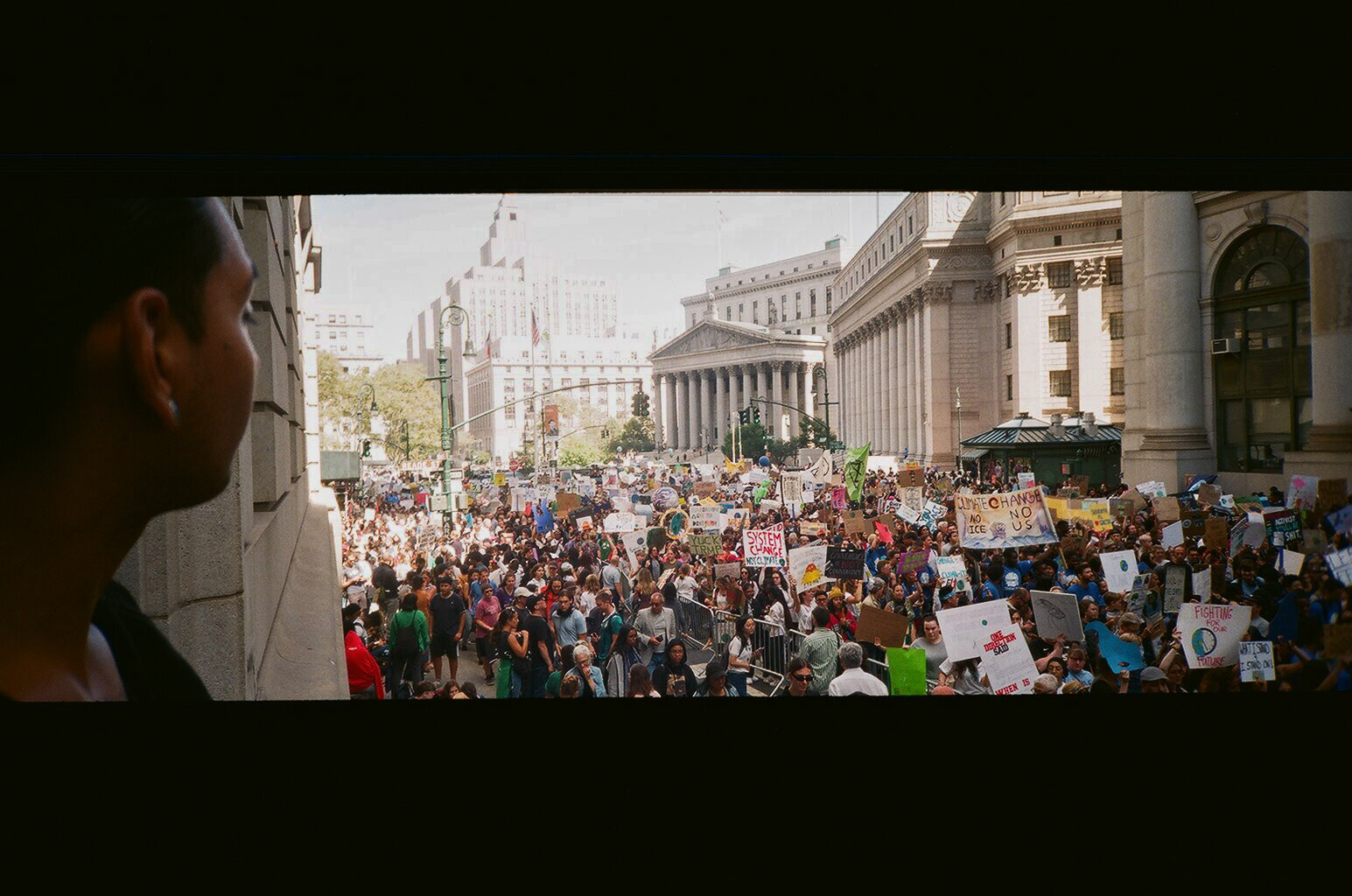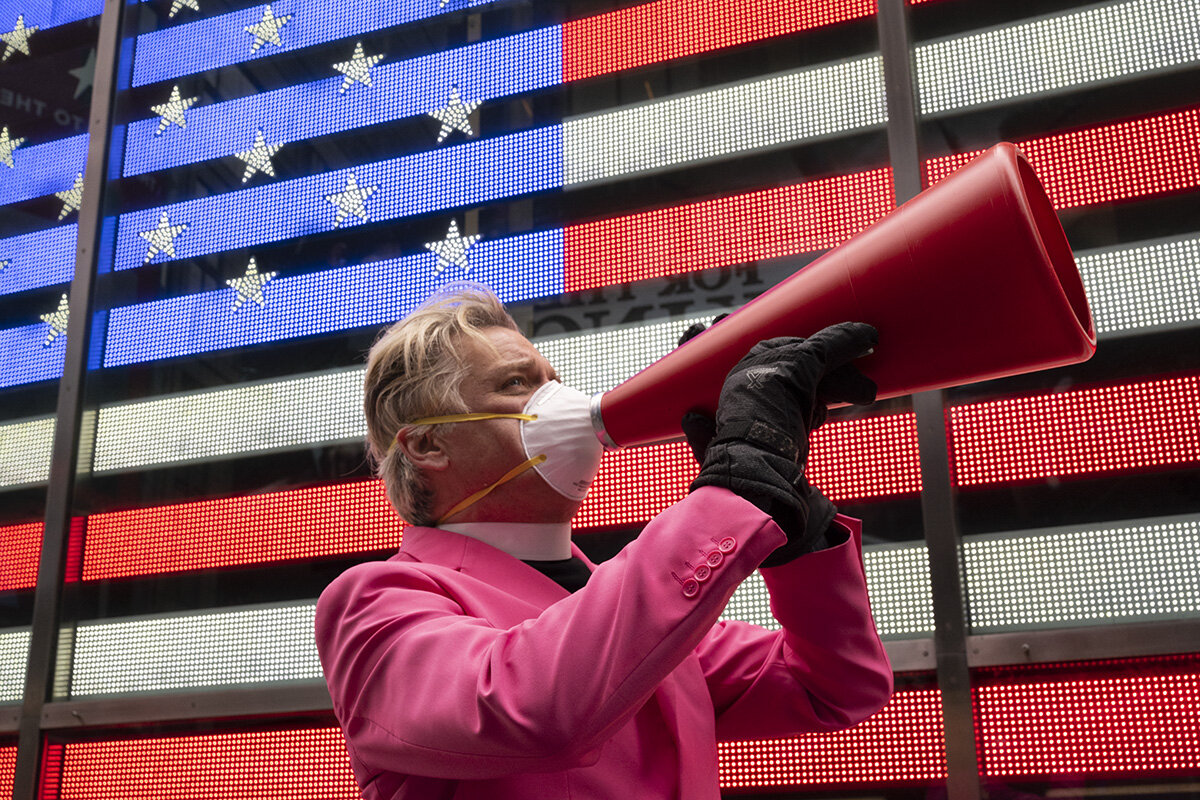Reclaim Pride: Ann Northrop
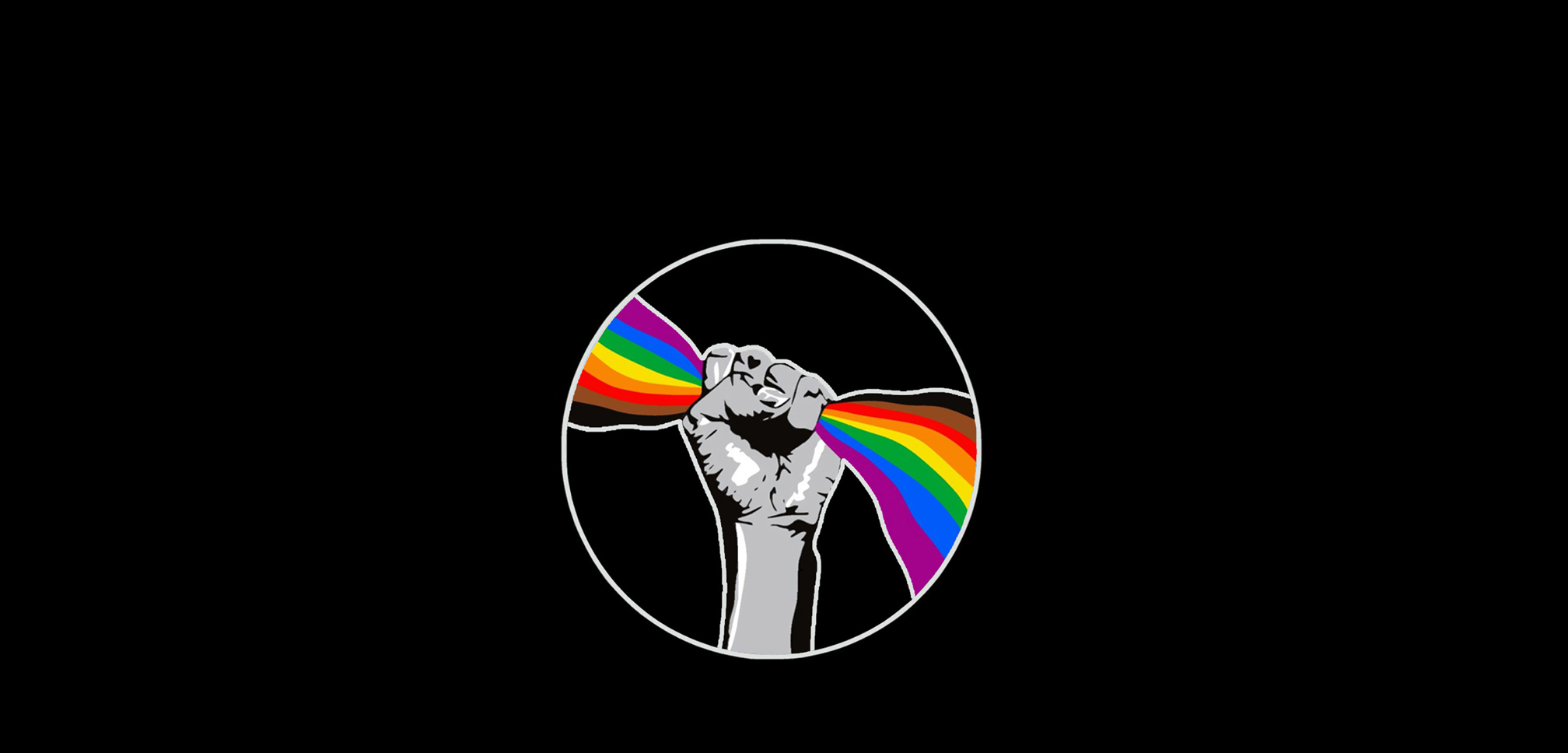
For Reclaim Pride Coalition, the corporate ‘pinkwashing’ of Pride is overwrought. Good Trouble sat down with Ann Northrop, an organizer of Sunday’s Queer Liberation March in NYC, the radical alternative that spares the presence of cops and corporate floats.
Words by Mollie Wodenshek
Somewhere in the past 49 years, Pride marches protesting for equal rights across marginalized groups turned into Pride parades, celebrations of queer culture for observation rather than participation. 2019’s Heritage of Pride (HOP) Parade will coincide with the first World Pride, licensed by InterPride, to take place in the United States. Meaning this year Pride will be larger, longer, and more corporate than ever before, with sponsorship from likes of Deutsche Bank, Chase, Uber, Salesforce, and many more.
The Reclaim Pride Coalition developed out of a resistance contingence formed within Heritage of Pride the year after Trump was elected to the presidency. After two years of disagreements with HOP over reintroducing politics into the parade, Reclaim Pride Coalition decided it was time to break from HOP and organize their own march. 2019 marks the inaugural Queer Liberation March and Rally. Tomorrow, Sunday, June 30th, they will march to reclaim the original principles of Pride.
The Queer Liberation March will be marching in the opposite direction of World Pride. Poster courtesy of Reclaim Pride.
Can you just tell me a little bit about the trajectory over the past year since deciding to organize the Queer Liberation March.
Terrifying! This actually started after Trump was elected. A bunch of us in different activists’ groups put together a little resistance contingence. We tried to convince HOP into making the Stonewall 50 Pride Parade a political parade and they were not having any of it. They were devoted to their corporate model. It became clear to us that we were on very different tracks and we were not going to reach any point that was acceptable to both of us. We said alright and took on the responsibility of organizing the kind of event that we think this should be.
Tell us about your position with Reclaim Pride Coalition and with the Queer Liberation March.
I am one of the organizers of the Queer Liberation March and Rally for Reclaim Pride. We are a democratic non-hierarchical organization; there is no one in charge – there are no officers. No one has any title other than organizers.
Do you think that democratic non-hierarchical structure plays into the role of resistance that Queer Liberation and Reclaim Pride Coalition are presenting?
I do. My previous experience with this model was in ACT UP, the Aids Coalition to Unleash Power. The idea was to give everybody a chance to talk and weigh in with their opinion, so we could work towards everybody in the room coming up with a plan together. One thing I found important is not to insist on consensus. I think that method is actually a way to actually stifle action. Something that is completely transparent, open, and completely democratic is my idea of a great way to come up with great ideas, great decisions, and great solutions to problems.
“There are ways in which these corporations have helped kill some of the anti-LGBTQ legislation, but what are they doing for black trans-women who are being murdered on a regular basis?... The people they are fixated on are the people they see as their consumers. ”
Photo courtesy of Reclaim Pride.
How does the containment of Pride represent the relationship between queer existence and homogenous society?
World Pride and Heritage of Pride has devolved over the years, from the glorious early Pride Parades into this corporate Mardi Gras. People have asked me where the turning point was and I actually couldn't tell you. I think the instinct at first was, "Oh my god! the mainstream now wants to pay attention to us, isn't this great, we’re legitimate human beings." But, many of us think that was the kiss of death and the people running those parades have sold themselves out.
Corporations pay tens of thousands of dollars to buy spots at the front of the parade so that they are included in the limited T.V. coverage by the local ABC stations. HOP buys that time with the money they receive from the corporations; it's a vicious little circle. The corporations get cheap advertising plus the added value of looking like they are doing this out of kinship with the LGBTQ+ community. There are ways in which these corporations have helped kill some of the anti-LGBTQ legislation, but what are they doing for black trans-women who are being murdered on a regular basis? What are they doing for the economically disadvantaged in the LGBTQ community? What are they doing specifically for LGBTQ people of color or trans women who need employment or housing? The people they are fixated on are the people they see as their consumers.
Photo courtesy of Reclaim Pride.
How much of value should we put on media?
I think that media whether it's traditional news media, social media, is the vehicle with which we communicate and try to make change in the world. A big point of this march and rally is to have a platform to talk about values to the public. Everywhere I go I hear, “I'm coming, I'm coming,” and “thank you for doing this.” I think these responses from people are shorthand for, “The Pride Parade no longer represents our values.” It's time in this world to speak up and communicate these values more widely. All around the world, this right-wing so-called populous has got to be opposed and this event and our ability to talk about these values in public is one of our important ways of fighting back.
“Between the police over-presence, the over barricading, and the HOP instructions not to allow individuals into the parade, [Pride] has become completely counterproductive. ”
This idea of inherent intersectionality is pertinent to the Queer Liberation March, how does that help the formation of the Queer Liberation March and the Reclaim Pride Coalition?
The beauty of the original pride parades was that it was a place that we could all come together and convey a message about social justice. Now the HOP parade specifically excludes individuals from joining the parade. The chant used to be, “Out of the closets and into the streets”, or “Off the sidewalks and into the streets.” HOP and the police department, at the instruction of HOP, prevent people from stepping into the parade, and the sidewalks are so heavily barricaded that you would have to fight your way through that to even try to do that. Between the police over-presence, the over barricading, and the HOP instructions not to allow individuals into the parade, it has become completely counterproductive. Reclaim Pride Coalition has created the exact opposite: an open, welcoming march that has social values and political values and that welcomes everybody in. Besides, here's the irony. Police are so busy policing the HOP march, or parade – or whatever they're calling it – they don't have enough police and barricades to close off our march!
Photo courtesy of Reclaim Pride.
It seems like what the Reclaim Pride Coalition is actually seeking isn't necessarily mainstream acceptance.
No, we're seeking social justice on any number of points. Local LGBTQ+ communities, around the world, are questioning what has happened to their Pride Parade – deciding that the corporate presence has gone overboard. They are creating marches to try to take back this event for people and communities and values that have disappeared in the way these things are produced now. We certainly want to live a free, safe, prosperous lives, and we want everyone else to too, but that is not defined by corporate floats in a Pride Parade.
Photo courtesy of Reclaim Pride
What is the Queer Liberation March’s stance on capitalist America?
I would say, what we're against is the rainbow capitalism that exploits us. There is certainly a variety of opinions within the group, but we certainly all agree that what corporations are doing with the Heritage of Pride march is what we would call pinkwashing – participating joyfully and advertising their support which pinkwashes some of their evil deeds. A lot of these corporations are funding right-wing politicians to support some technical issue that they care about in Congress. Meanwhile, those right-wing politicians are refusing to support the Equality Act or support the overturning of Non-Discrimination Regulations. When it comes to the corporations bottom-line what they're really concerned about is their bottom-line and not its impact on any number of people.
“That’s what all activism is. There are no guarantees. It’s always an effort of hope and belief.”
Will there always be that element of pinkwashing, and if so, will the queer community be a community of resistance indefinitely?
I hope not. We can never have any guarantee. Activists have always been a minority of the community. We may reach agreement on some of our values, but there will always be a finite number of us who are willing to go out in the street and demonstrate and march and those of us who do it are happy to take on that responsibility because not everybody can and not everybody wants to.
We had a vision and a willingness to work to make that vision reality and that's what all activism is; there are no guarantees. It's always an effort of hope and belief. As angry as we are, and God knows we’re angry, it’s actually a manifestation of hope and belief in some kind of possible justice.
As you know, Good Trouble is a celebration of resistance. What is your personal definition of resistance?
I'm always interested in questioning authority and not accepting conventional wisdom. I think speaking up and asking questions and raising issues and offering other ideas and other ways of doing things is crucially important to our whole civilization. I think the people who regard resistance negatively are the people who are invested in the power structure as it is. And scared of change. I’ve always had trouble with authority – I think it goes back to my childhood. I'm just naturally inclined to fight the power.
ACTIONS
If you are a New Yorker, you can join us at the March at any time. Step off is 7th Ave south of Christopher Street @ 9:30am. Another gathering point is Bryant Park @ 11am. The march will end with a Rally in Central Park's Great Lawn at 1 pm with disability access on the corner of East 85th Street & 5th Ave. If you are feeling especially radical, you can sign up to volunteer for the March.
Check out the speaker’s list (included is Oscar-nominated Larry Kramer!)
Join the grassroots organization. Reclaim Pride NYC has open meetings every Wednesday at the People’s Forum.
Author account for the Good Trouble hive-mind.






